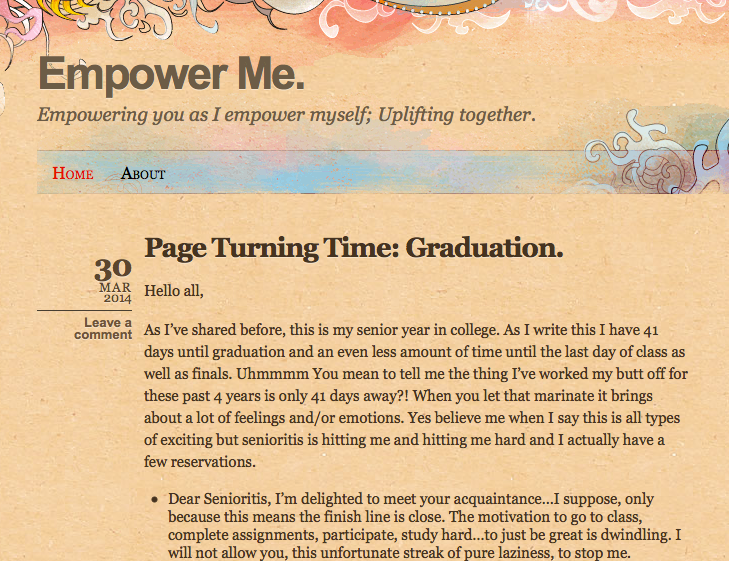myHIN Blog
Category: Health Equity Articles

July 05, 2022
Bias in not just in HealthCare: Algorithmic equity in the hiring of underrepresented IT job candidates
published in Online Information Review, Special Issue on Social and Cultural Biases in Information, Algorithms, and Systems by Lynette Yarger, Fay Cobb Payton, Bikalpa Neupane; picked up in IEEE Spectrum Feature
#AlgorithmicBias #AI #Bias #TalentManagement #Tech #DesignJustice
Share

June 13, 2022
Managing Hypervisibility in the HIV Prevention Information Seeking Practices of Black Female College Students
published in Journal of the Association for Information Science and Technology by Lynette Kvasny Yarger and Fay Cobb Payton
#HealthCare #UX #InformationSeeking #BlackWomen #Hypervisibility
Share

December 09, 2015
Decisions, Decisions: Sexual Health Education or Mental Health
Public Health Education is such a broad field of study, with a vast selection of areas to choose from. There’s tobacco, global health, epidemiology, climate change and a host of others. Out of these various topics, I find myself drawn to a few that seem to peak my interest: Sexual/Reproductive Health education, Domestic Violence, and Suicide/Depression. I haven’t decided exactly which area I want to focus on after graduation, but I have tried to educate myself on these topics.
My interest in Sexual Health came about in my Human Sexuality class that I took my first semester in the Health Education department. At first I only took it because I just need another health elective to take and didn’t think anything of it. We discussed so many things in that short amount of time and I was hooked ever since. My professor has been very influential in my decision to teach sexual health education.

On the weekend of November 21st, I had the privilege to volunteer at the 10th Annual Teen Talk Lock-In for the Wake County Health Department. It was an all night, interactive sexual health education workshop for teens. The key areas of focus were attitude & mindset, healthy lifestyles, and access to resources. They had 5 workshops on building positive and healthy relationships, coping and looking forward to positive outcomes, what love is and how to communicate your love to others, understanding your body inside and out, respecting different lifestyles and identities, and also the importance of Sexual Health Education and HIV/STI testing. I was able to go from session to session with the kids and observe the different speakers, my professor being among them. Seeing them interact with this age group, 12 to 17 year olds, further convinced me that I need to do sexual health education. I would like to further help in the fight to make sex a normal thing to talk about in everyday conversation.
October was Domestic Violence Awareness Month, and I was appointed Chair of the 2nd Annual Women’s Empowerment Program for our Department of Health Education at North Carolina Central University. The purpose of this year’s program was to increase awareness of Intimate Partner Violence (IPV) and its correlation to HIV incidence among college women, through education, empowerment, and condom usage. The goal of the program was to empower young college women to RESPECT themselves in order to PROTECT themselves from HIV. Our keynote speaker and founder of Healing after Domestic Violence (HAD). Her story was so powerful, there wasn’t a dry eye in the house. The program targeted 18 to 24 females on campus. Being in the city of Durham, the young ladies on campus are bound to meet and maybe even start relationships with boys on campus as well as from the surrounding areas. For many of these girls, it is their first time away from home, without direct supervision, and they are likely to take advantage of that. Unfortunately for them, not everyone they deal with will have their best intentions at heart. What can start out as a sweet and loving relationship, can go really south, really fast. The program highlighted signs of domestic violence and where to seek help. There were also booths set up, by myself and my fellow Public Health Associates, showcasing different Social Marketing campaigns focused on Intimate Partner Violence. Resources that are available on campus also had booths set up.
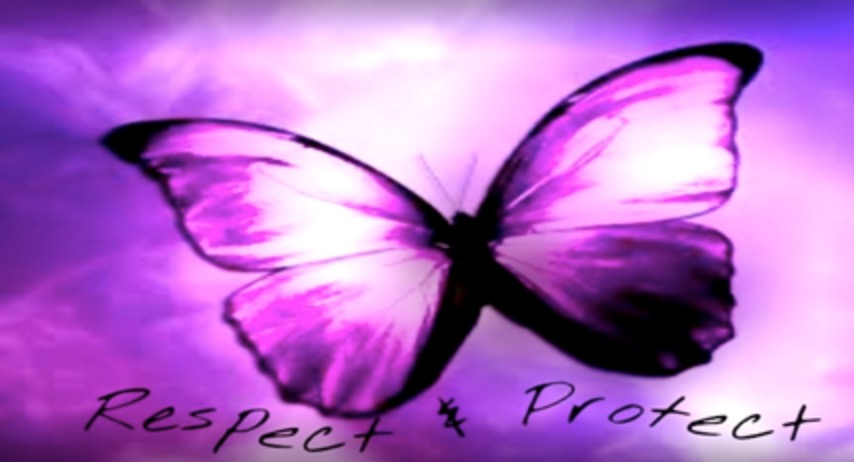
In my research class, we had to choose a health topic to do research on. Normally, I would chose HIV/AIDS, but this time I did suicide and depression, focusing on African American women. I was very surprised that it was hard to find almost any articles on my target population. I’m talking about hours and hours of searching for an article even remotely focusing on depression or suicide in African American women. It was alarming to me, and made me think why no one had decided to do any research on this underserved population, in this regard. As a part of the aforementioned population, I personally know that depression is real in the African American community. There is also a stigma attached to it. I’ve heard people say “Black people don’t get depressed. That’s only crazy white people. Just get over it.” What people don’t realize is that downplaying anyone’s feelings of depression is not helping them at all, and possibly even worsening it, leading them to suicide. If I were to choose this as my final area of focus, I would definitely want to go into research regarding African American women and teenagers.
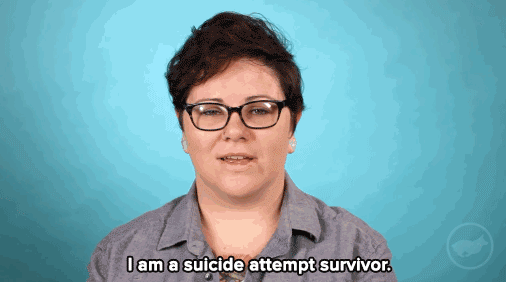
I wasn’t sure how Public Health Education was going to work out for me when I first transferred to the department, but I soon found my place. I chose to focus on these topics for various reasons. I know people who don’t know how some STIs are transmitted and don’t know how to use condoms properly. I know others who have been in abusive relationships, not even realizing that they were in one, and not want help trying to leave the person. That hurt me, that as their friend, they didn’t want me trying to help them. I, myself, struggle with my own depression, and dealing with it. There is always someone who needs public health education and resources, and as a future health educator, I am working hard so that one day I can help others with their problems.
Follow @myhealthimpact on health and tech stories impacts #youngppl. #publichealth #mentalhealth #sexualhealth
Share

November 19, 2015
Mental Health Among My College Peers
I wish that individuals suffering from mental health issues could feel the embrace of support on a national scale. I think about the utilization of pink to express the support of breast cancer and seeing it on television, on football fields, and on college campuses. I think of the hope that comes with such support, and I long for something similar in regards to mental illness. The American Psychological Association reported that 44% of the patients who visited college counseling services “had severe psychological problems.” This number, however high, does not begin to tell the full story on mental health, especially in the college aged demographic. The stigma surrounding mental health issues is often silencing, which is why it must be spoken about deliberately. In the last year, NC State has lost two students to on-campus suicides, and even more outside of campus. This is to say the least, both concerning and devastating.
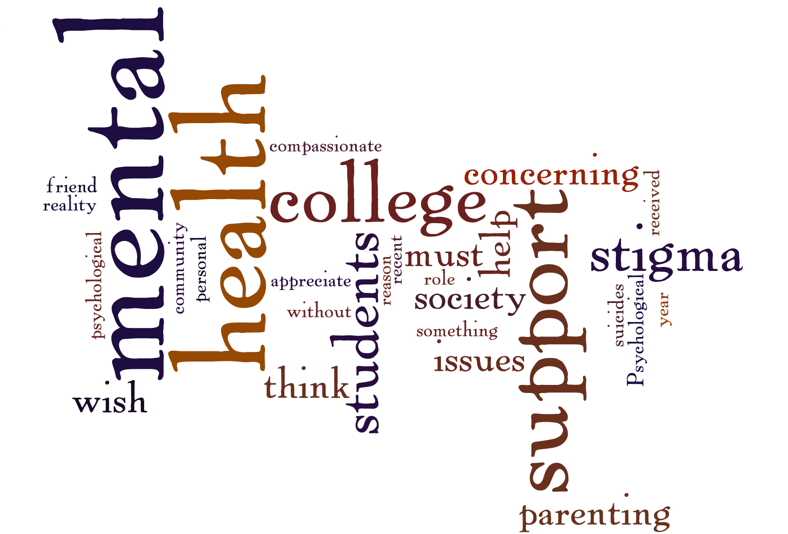
I am very thankful of my parents for raising me to be a compassionate friend and an attentive listener. They modeled for me to listen without judging and as a result I believe many of my friends have felt comfortable sharing openly with me their stress and worries. Some may say I am a bit hypersensitive to the mental health of others, I don't mind that personality trait. In a recent conversation with my mother who has practiced as a psychotherapist for over 20 years, she reminded me that one of the biggest barriers to young adults seeking help for their mental health is the role that stigma plays in our society. The reality of stigma is that it perpetuates isolation, shame, and hopelessness. It is understandable that individuals with emotional distress would be hesitant to ask for help in this environment.
As a society, we are generally unaware of the level of struggle that college students face with regard to mental health. There are students who walk in the dark every day without feeling supported and it is up to us as friends, faculty, acquaintances, classmates, and a community to help break the silence, increase awareness and show more compassion to those suffering from mental illness. We have both an individual and collective responsibility to support each other, this is the only way out of the stigma of mental illness.
Follow @myhealthimpact for real talk on often hard topics.
#mentalhealth #collegestudents #stigma #supportsystems
Share

July 15, 2015
Access to Health – A Privilege - and Two Brothers Planning to Collaborate
When I was growing up, eating healthy and physical fitness was something that was talked about fairly often in my household. I played sports throughout my childhood and remained very active. And for the most part, this was the case for everyone in my family. I always had access to a gym, fresh fruits and vegetables. Having the ability to eat healthy is a luxury, and I never really realized how much of a privilege it was until I was exposed to some statistics. “A recent multistate study found that low-income census tracts had half as many supermarkets as wealthy tracts. Another multistate study found that eight percent of African Americans live in a tract with a supermarket, compared to 31 percent of whites” (Bell). I would love to say that a statistic like this really stands out but it doesn’t at all. Minorities, particularly African-Americans, as a community, are extremely disadvantaged when it comes to healthcare as compared to their white counterparts.
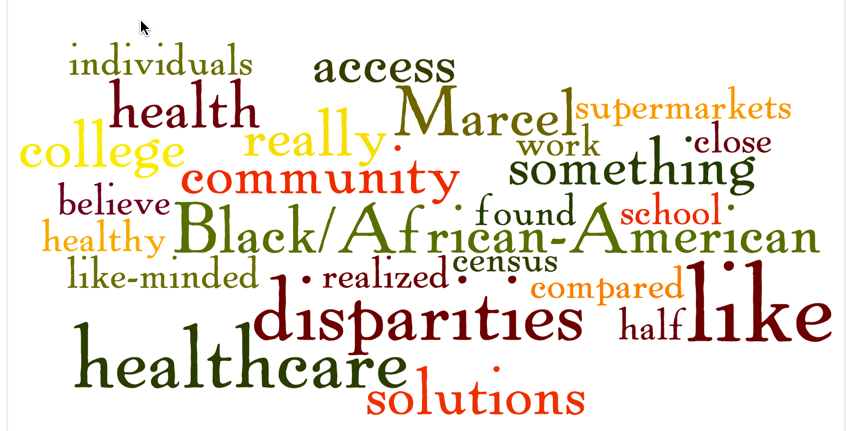
When I first began to understand the notion of health disparities, I was intrigued and motivated. Why should citizens of the United States already a decade and a half into the twenty first century not have access to supermarkets close to their places of residence? Over time, I have realized that this is something I would like to change. Closely approaching my senior year of college, I have had the privilege of completing two ethnographic studies that examine pharmacy and supermarket access as well as examining health related racial disparities. Both of these studies examined the neighborhood of East Liberty in Pittsburgh, Pennsylvania which according to 2013 census data is around 74% Black/African-American.
I feel so personally invested in the discussion of healthcare disparities and healthcare equality for all because I identify with the Black/African-American community. After college ,I would like to further my knowledge on these subjects by pursuing my Masters degree in public health. I believe my future education will give me not only the tools and resources to think of potential solutions to my community’s problems but also allow me to work with other like-minded individuals.
One of the like-minded individuals I hope to work with in the future is Marcel Souffrant. Marcel and I went to high school together and have been close friends since around 2011. He is currently planning to attend medical school following graduation from college in the spring of 2016. In a true collaborative effort, I believe we can both help craft potential solutions to these healthcare disparities that currently plague the Black/African-American community. Two Black/African- American men working together to create solutions to these chronic issues is something I am really beginning to like the sound of. Follow the journey along at @myhealthimpact for this, other health-tech topics and voices of young people like me and Marcel.
Citations
Bell, Judith, Gabriella Mora, Erin Hagan, Victor Rubin, and Allison Karpyn. "Access to Healthy Food and Why It Matters." Thefoodtrust.org. Policy Link, 2013. Web. 10 July 2015. <http://thefoodtrust.org/uploads/media_items/grocerygap.original.pdf>
Share
April 09, 2015
Sexual Health Education
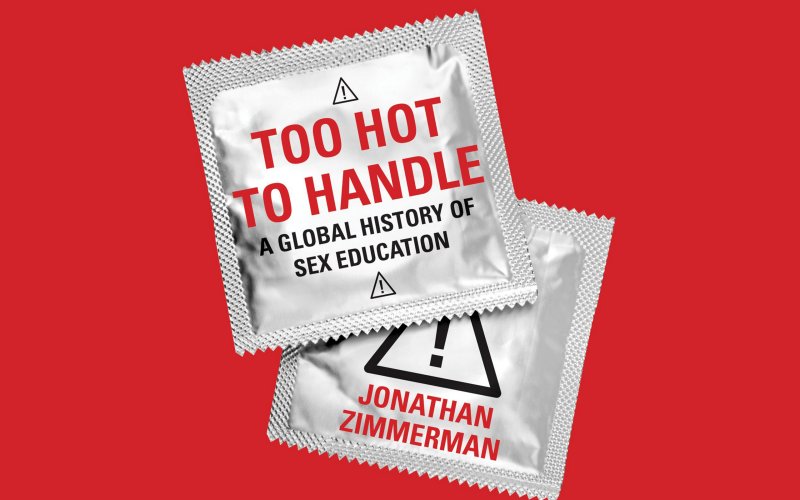
Denae
It was in elementary school that we had our first sexual education course. It was either 5th or 6th grade that we marched into my Science Teacher’s room to hear the real truth about the birds and the bees. Of course, our parents had to sign a permission slip in order for us to get the life lesson. The funny thing is I barely remember anything about that class. All I remember is that we sat down we talked about different types of condoms, pregnancy, and maybe chromosomes. My parents never had ‘The Talk’ with my siblings, and I so this class was the closest thing to it.
It wasn’t until I had a Sex Education class my ninth grade year in High School that I had to witness the miracle of child birth. In this class, we watched videos and talked about the entire sexual reproductive system. After that, there were no other topics on that until I got to college.
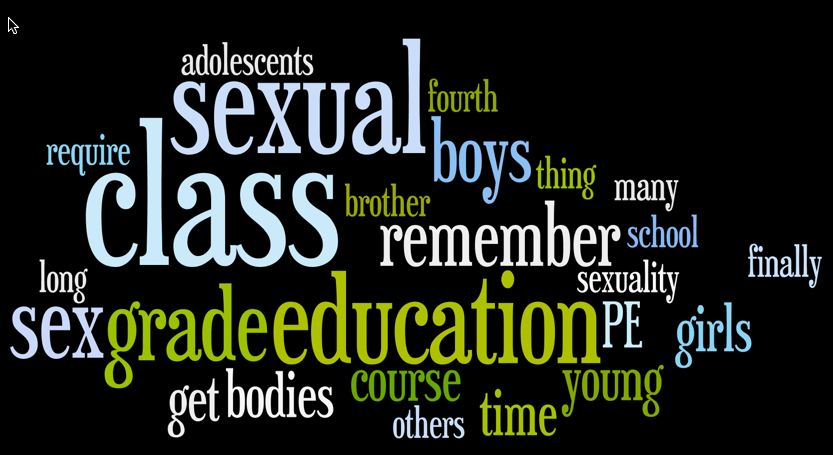
Marcel
From a very young age, I was made aware that there were differences between “boys” and “girls”. I faintly remember a time in second or third grade where they took each student in the class and pointed to two dolls, mentioning there were differences and that it was inappropriate to touch certain areas of each doll. But this was not a true introduction to human sexuality. I took had a 5th grade class where we learning about family living, ethical behavior, and human sexuality. It was here that I learned of abstinence and its importance in remaining healthy. When I entered high school, I finally learned about contraception, STDs and STIs, but for many this is much too late.
I have the great fortune of having a psychotherapist as a mother. She has worked with adolescents for a long majority of her career, and has always been very open with my brother and me about what is and is not appropriate. My sexual education may have begun earlier than many, but my mother’s experience with adolescents who had experienced sexual violence or had committed acts of sexual violence against others forced her hand. My brother and I were taught early on about our bodies, respecting ourselves, and showing the utmost respect for others.
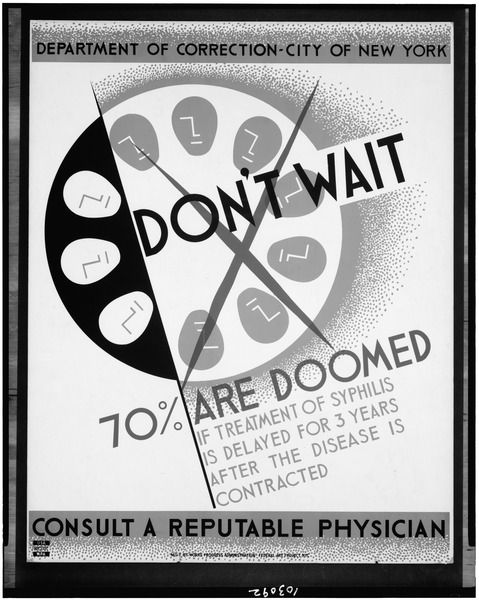
KaMar
I remember going to my PE class in the fourth grade excited to finally let off some steam and play with my friends. It was Friday which meant free day aka everyone grab a basketball and find the nearest hoop. However, today would be different as my PE teacher split up the group into boys and girls. The girls were taken to another classroom while the boys were instructed to sit on the gymnasium floor. Up above was a rolling TV cart and my PE Teacher explaining to the boys group that he forgot to mention during the last class that he had to teach us about how our bodies change as we get older. Naturally, we weren’t trying to hear it, but we sat and listened hoping we would get just 5 minutes at the end of class to throw up a few baskets.
We ended up watching a long and boring film that never spoke about how our bodies changed over time but rather depicted various sex organs, including their scientific name, while narrated in a robotic tone. Thinking back to the actual footage, I cannot understand how something so incredibly stale could be shown to fourth graders! At a time where young students gravitate towards shows on Disney, Nickelodeon, PBS, and other children focused networks, it’s mind boggling to note this film as my introduction into the sexual reproduction cycle. I am not alone on this issue as sex education is anything but standardized. At present, only 22 states require sex education in schools, and only 19 require that sex education is medically, technically or factually accurate. With those numbers, I wonder if sex education is meant to teach young minds about sexual health or just a course with a checkbox?
Share

August 13, 2014
“Selfies” and Mental Health Disorders
Experts including Dr. Lucie Hemmen and Dr. David Veal are beginning to consider a compulsion to take selfies as a serious mental health problem. Individuals can spend hours, even days taking hundreds of selfies in an attempt to capture the “perfect” photo (McKay). Taking selfies can lead to technology addiction and Body Dysmorphic Disorder — a chronic mental health condition in which the sufferer obsesses over perceived flaws with their body. In addition to that, it has been proven by multiple studies that taking selfies can be detrimental to a person’smental health, and it can be linked to narcissism, depression, and low self-esteem.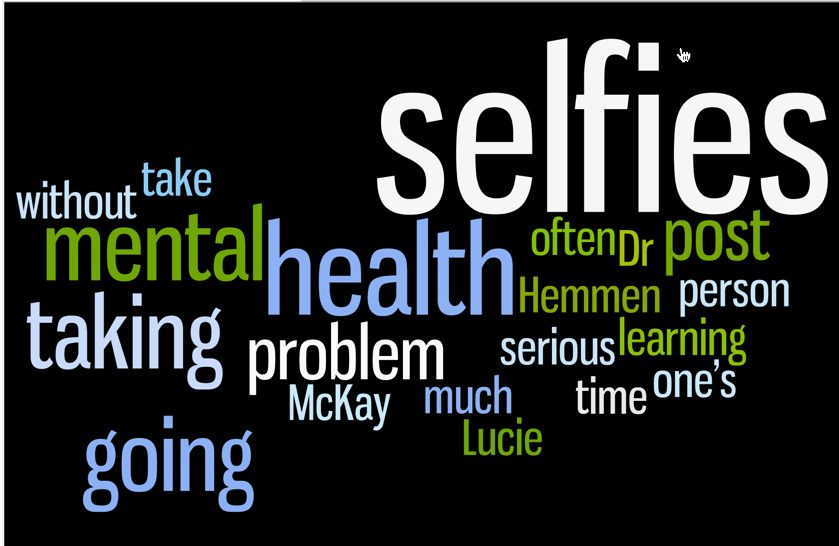
So how can we fix this problem? First, we have to realize that there is a deep denial about how dangerous it is to interact with screens without setting limits on how much time is spent doing so. With that said, it is hard to convince people that the effects of taking selfies are serious. Nevertheless, the common treatment of taking selfies is gradually learning how to go for longer periods of time without satisfying the urge to take a photograph, along with therapy to address the root cause of the problem. Thus, learning how to use selfies in moderation. Selfies, if used properly, can be a feel-good and often creative way, to chronicle one’s life and emotions and express one’s personality.
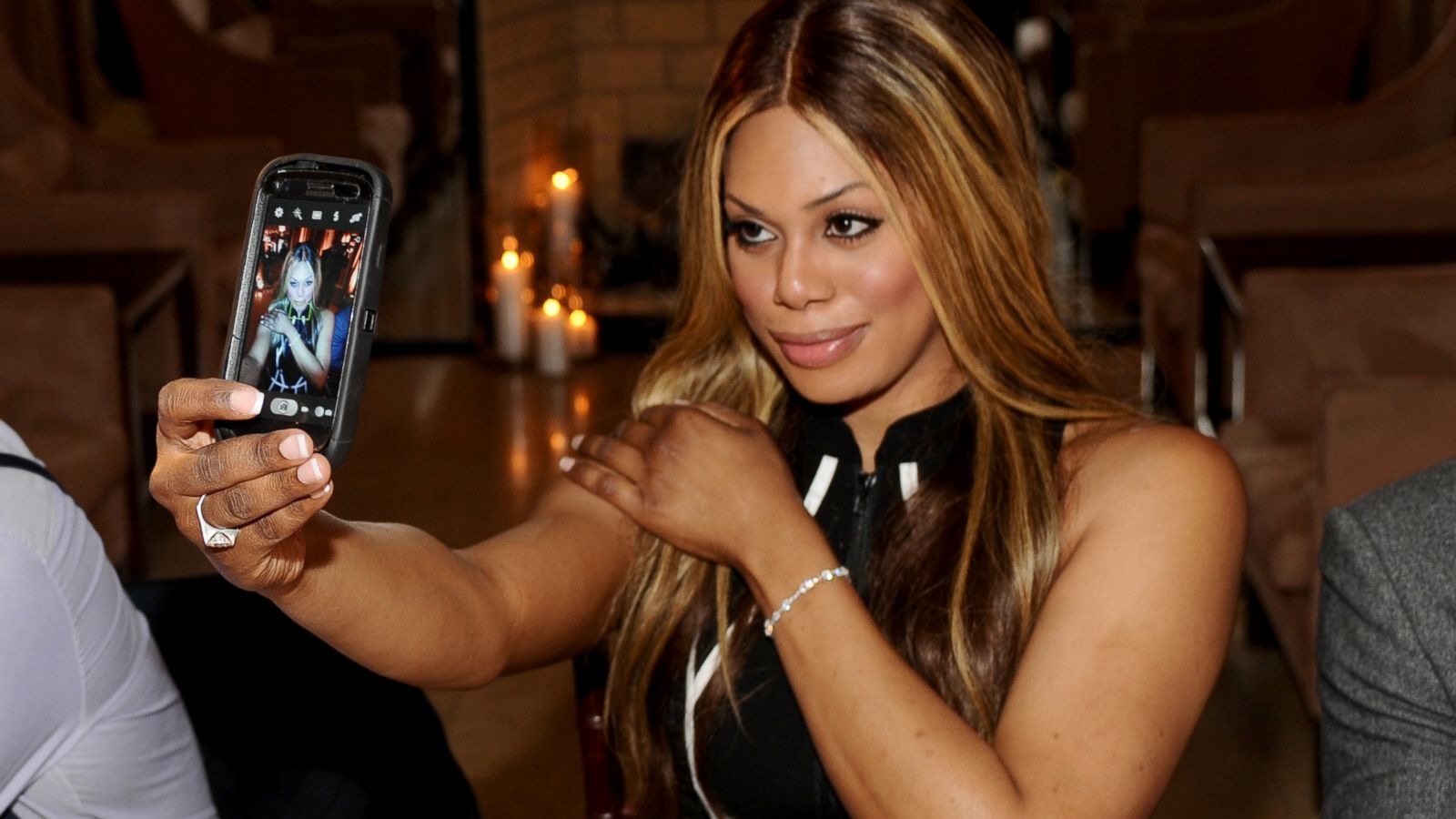
In conclusion, know this—According to clinical psychologist Lucie Hemmen there is a continuum of health and authenticity in what you shoot and post (McKay). A secure, mature person is going to post selfies that are spontaneous and not overly engineered or edited, and they're going to do it less often. A more insecure person is going to post staged or sexualized photos, and they're going to do it so much that they become consumed by it and the comments they receive. Let’s not let selfies control our mental health.
McKay, Tom. "A Psychiatric Study Reveals Selfies Are Far More Dangerous than You Think." PolicyMic. N.p., 28 Mar. 2014. Web. 16 June 2014. <http://www.policymic.com/articles/86287/a-psychiatric-study-reveals-selfies-are-far-more-dangerous-than-you-think>.
Share

July 30, 2014
Women’s Role in Men Health
Not to generalize all men but I know that the guys around my house used to absolutely despise going to the doctor because they felt like it was a waste of time. They believed that ALL could be healed with anything in the medicine cabinet and band-aids. This was my Dad before he suffered from a heart attack. These days I feel like our family dynamic is a little different. My Dad definitely doesn’t mind going to the doctor now and instead suggests healthy options at the dinner table.
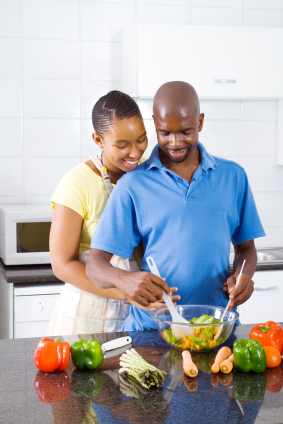 My Mother and I are the only two females in my household and although my Dad has taken a different role in the health of our family, at the end of the day, the women keep things realistic and rational. There are many food options that my Dad brings to the table, but we (the women) figure out how to make these things work for our family or how to politely tell him “No, we’ll pass on that one”. From incorporating more fish, chicken and turkey into our diets and working out pork and beef to even starting our own family garden, our family has been made a complete lifestyle change. What’s an idea without someone to put it into action? Right, just an idea.
My Mother and I are the only two females in my household and although my Dad has taken a different role in the health of our family, at the end of the day, the women keep things realistic and rational. There are many food options that my Dad brings to the table, but we (the women) figure out how to make these things work for our family or how to politely tell him “No, we’ll pass on that one”. From incorporating more fish, chicken and turkey into our diets and working out pork and beef to even starting our own family garden, our family has been made a complete lifestyle change. What’s an idea without someone to put it into action? Right, just an idea.
I believe that women play a huge role in men’s health. Typically because women are more aware of the signs of pending health issues thus sending up a red flag and ensuring that the men (in our families) see a doctor. So let's just face it, we are the backbone!

Share

April 30, 2014
Empower Me and Health
Recently I started my own blog called ”Empower Me.”. My decision to start a blog came from having a need to just get it all out. Often times, I find it hard to verbalize what I need say but writing these things out seemed to be my way to vent. For the longest, I struggled with a blog name, the audience I wanted to reach, really even if I wanted to go forward with the whole thing, did I have time and would people really read what I have to say? I obviously put those things aside, stepped out on faith and onward I went. As my “about” states, “My goal is to empower and my purpose is to help. I’ve realized that as I pour myself into others, I’m doing nothing but helping myself. Empowering you as I empower myself; uplifting together”. If you can’t tell already, this blog is like my baby. Excuse me, as I get a little passionate. I’m still in the beginning phase of this and I haven’t written many posts but I believe this is the start of something great.
As of yet, I haven’t directly made a post about health and its importance but with my interest and own personal struggles with weight-loss, eating right etc., it isn’t far off. People tend to forget that mental health is a huge component of overall health. I’ve never really thought about it in this way, but I do believe that my blog caters to being mentally healthy; burden-free, honest, successful, stress-free, excited about life and happy. I’m promoting these behaviors because in my own personal opinion, it’s important to be this way. If you haven’t checked out my blog please do so and hopefully it will help you as much as it helps me. Uplifting together.
http://empoweredbykeiara.wordpress.com
Share

February 13, 2014
5 songs that speak HEALTH!!
With the new year almost a month in, it’s important to make sure you are sticking to and staying motivated as you continue your new year resolutions. It’s important to maintain a healthy routine so you can reach your goals. With that said, there is nothing like having the PERFECT playlist that can help motivate, yet, push one to reach new heights. As I make my journey to a healthier lifestyle, I find myself listening to songs that uplift and encourage me to succeed. I hope these songs speak health to you as they do for me. These songs are just “feel good” songs that get you up and moving! Not only that, these songs can give you that spark of confidence to feel good about your body.
1. Happy by Pharrell Williams
2. Just the way you Are Heaven by Bruno Mars
3. Royals by Lorde
4. Made to Love by John Legend
5. Scared of the Beautiful by Frank Ocean
Though these songs range in their artistry, they make you feel good. I hope these songs are encouraging for you as they are for me. Below are excerpts from the lyrics of each song that speak to me! Enjoy!
Happy by Pharrell Williams
“Clap along if you know what happiness is to you because I’m happy…
bring me down, can't nothing bring me down”
Just The Way You Are by Bruno Mars
“When I see your face (face face...)
There's not a thing that I would change
'Cause you're amazing (amazing)
Just the way you are (are)
And when you smile (smile smile...)
The whole world stops and stares for a while
'Cause girl you're amazing (amazing)
Just the way you are (are)”
Royals by Lorde
“We're bigger than we ever dreamed,
And I'm in love with being queen.
Ooh ooh oh
Life is great without a care
We aren't caught up in your love affair”
Made To Love by John Legend
“His perfect work of art, I knew right from the start,
I was never sure of a God before but I know he must exist,
He created this.
I was sent here for you. We were made to love”
Scared Of Beautiful by Brandy (written by Frank Ocean)
“No wonder why there's no mirrors on these walls no more
You can't tell me why you're so terrified of beautiful
Scared of the good more than the evil
Scared of the light more than the dark
Scared of the truth so much more than the lie
I'm scared for you
Scared of beautiful”
Follow us at tumblr.myhealthimpactnetwork.org (Tumblr)
Follow us on twitter @myhealthimpact
Share
In Partnership with: Poole College of Management, College of Humanities and Social Sciences, National Science Foundation, Penn State
Take Action, Get Tested: Find Your Local Testing Center Why Get Tested?
